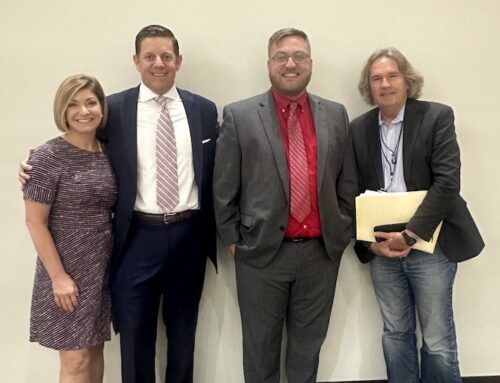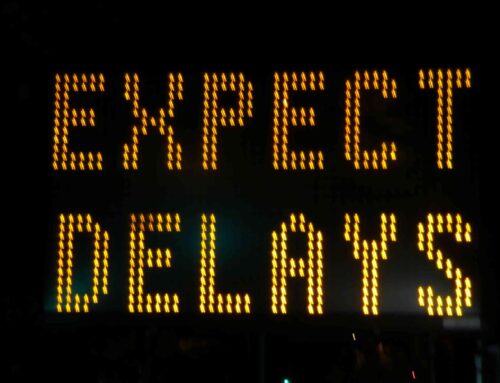Police say Covenant School parents may intervene in public records case, judge delays hearing

Chancellor I’Ashea Myles is the judge in the public records case regarding the Covenant School shooter’s writings collected by police and other records.
Metro Nashville lawyers said in a motion in a public records case that some parents at The Covenant School do not want police to release the writings of the shooter who killed six people there and may intervene in the case.
Davidson County Chancellor I’Ashea L. Myles granted five additional weeks to Metro Nashville to prepare for the public records case over the shooter’s writings and other related records, moving the initial show cause hearing from May 11 to June 8.
Meanwhile, Metro Nashville has said that it won’t release any records that it gathered in the aftermath of the March 27 mass shooting “pending orders or direction of the court.”
Myles’ order moving the date and Nashville’s decision not to release records until ordered by the court effectively further delays the release of the shooter’s writings and other information gathered at her home and in her car that might shed light on her motivations. Lawmakers and others have called for the release of what police originally called the shooter’s “manifesto.”
Police: Some Covenant parents don’t want shooter’s writings released
The city said in its motion that delaying the hearing would give time for parents at Covenant School to intervene in the lawsuits if they wished.
“Some parents from The Covenant School have informally indicated to the MNPD that they oppose the release of the shooter’s writings. The Metropolitan Government believes they should have an opportunity to participate in the show cause hearing if they wish and that the Court should consider these varying interests,” the motion said.
Other intervening parties may include news organizations and representatives of The Covenant School, the city said.
Police cite Rule 16 exemption as reason for denying records
Two public records lawsuits have been filed against Metro Nashville over records related to the shooting.
In denying access to the records, Nashville police cited the so-called Rule 16 exemption, which allows law enforcement and prosecutors to withhold records that are relevant to an ongoing criminal investigation. Rule 16 is part of the Tennessee Supreme Court’s Rules of Criminal Procedure and applies to ongoing criminal cases. However, the Supreme Court ruled in 1986 in a case involving Memphis police records that Rule 16 does not apply when the records are “not relevant to any pending or contemplated criminal action.”
The plaintiffs argue that the Rule 16 exemption does not apply in the Covenant shooting because there are no underlying criminal proceedings and no contemplated charges — police have indicated the shooter acted alone and the shooter, Audrey Hale, was killed by police inside the school.
Metro Nashville said the original May 11 show cause hearing scheduled by the court “is simply not feasible” and the city needs more time. The law requires a show cause hearing in public records lawsuits to avoid government entities from delaying access to public records by dragging out litigation through legal maneuvers. It speeds resolution in a case because the government entity is required to come to court and explain to the judge the legal reason it didn’t release the records, allowing the judge to more quickly make a ruling.
“The Covenant School shooting occurred only 37 days ago,” the city said in its motion. “The Metropolitan Nashville Police Department (“MNPD”) has been investigating, grieving, working with state and federal agencies, reviewing the officer-involved shootings, interviewing witnesses, executing search warrants, and gathering documents related to the incident. MNPD has not had an opportunity to interview everyone related to the incident and review all the documents it has gathered. Its investigation file is still active. Moreover, Petitioners have requested many more documents than just the journal found in the shooter’s car. It is not feasible to produce all these materials instantly, nor are they public records while an investigation is still open.”
Lawsuits ask for the manifesto, communications between police and FBI, White House
The two lawsuits were by Clara Brewer, a Hendersonville resident working with the National Police Association, and James Hammond, a former Hamilton County Sheriff working with the Tennessee Firearms Association.
Brewer requested: all writings by Hale recovered by police including the so-called manifesto, all records depicting or describing the writings, all records depicting or describing analysis of the writings, all records of communications between police and the Office of the Director of Community Safety of Nashville regarding the writings, all records of communications between police and the Nashville mayor’s office regarding the writings, all records of communication between police and the FBI regarding the writings, all records of communications between the Nashville police and the White House regarding the writings, and all records of communications to and from the police department mentioning or regarding the writings.
Hammond and the Tennessee Firearms Association requested: all police reports documenting the shooting, all police “Force Investigation Team” internal administrative reports including those required by police policy, all police communications concerning the release of the manifesto, all police communications with the FBI, the Department of Justice and the Nashville district attorney regarding a designation of the shooting “by a self-identified transgender suspect” as a “hate crime,” and all criminal and field intelligence reports or received complaints about Hale from Jan. 1, 2020 to present.
Police say school security, attorney-client privilege exemptions may apply
Police denied the public records requests citing only the Rule 16 exemption. But in the city’s motion asking for a later hearing, it indicated that it might claim other exemptions as well.
The motion stated that some records might be exempt from production under the attorney-client privilege and others under a statutory exemption that makes confidential “(i)nformation, records, and plans that are related to school security, the district-wide school safety plans or the building-level school safety plans” [T.C.A. §10-7-504(p)].
“The Metropolitan Government has no desire to slow-walk this process. MNPD appropriately anticipated that portions of the journal found in the shooter’s vehicle would be released very soon. Now that these lawsuits have been filed, however, and many more documents have been requested, the Metropolitan Government seeks the Court’s assistance to manage all the requests and competing interests, in compliance with the Public Records Act, in a well-ordered, transparent manner” the city said in its motion.
The city is being represented by its director of law, Wallace Dietz, Lora Barkenbus Fox, Cynthia Gross and Phylinda Ramsey.
Brewer is represented by attorney Doug Pierce of King & Ballow. Hammond and the firearms association are represented by John Harris III of Schulman, LeRoy & Bennett PC.




